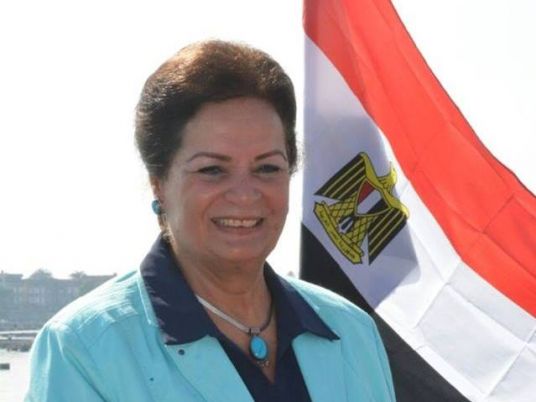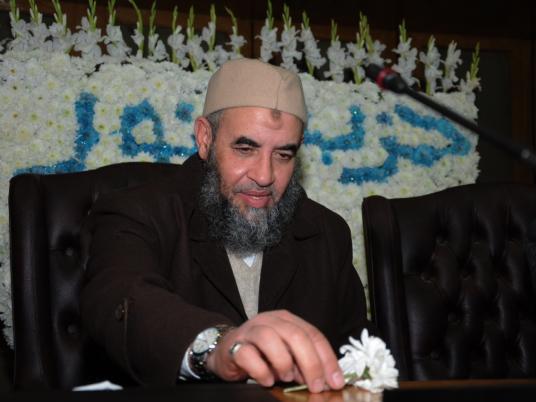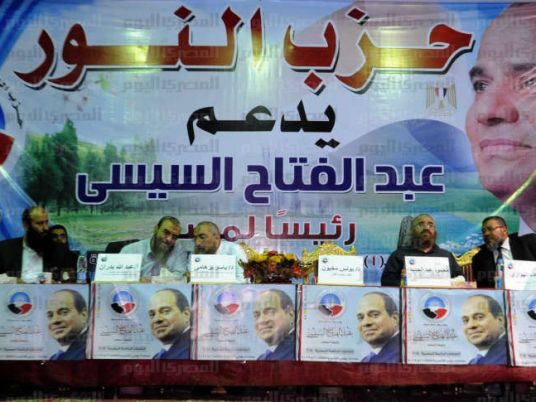Families of victims of the 25 January revolution who accept blood money in return for dropping their cases against police pose an emerging threat to the revolution, critics say.
Just this week, nine families dropped charges against the police officers accused of killing their relatives by changing their testimonies and saying that they were unsure of the officers’ identities.
The families' decisions not to pursue their cases could constitute a major challenge not only to Egypt’s judicial system, but also to social justice, one of the pivotal demands of the revolution.
“People who are pushing those families to accept a certain amount of money to change their testimonies against the murderous officers are acting simply against the whole idea and struggle of the revolution,” said Abdullah al-Senawy, a leftist columnist and outspoken critic of ousted President Hosni Mubarak, told Al-Masry Al-Youm.
Usama Abu al-Maty, whose brother Saber Abu al-Maty was killed during the revolution, alleges that influential Salafi preacher Yasser al-Borhamy has been mediating accords under which families receive blood money – a fine paid to the next of kin of someone who has been murdered – to drop charges against police officers. Salafi leaders have come under fire of late following revelations about their supposed mediation efforts.
Borhamy confirmed that the military had asked him to mediate between the accused officers and the families, according to Maty.
Abdel Moneim al-Shahat, a prominent Salafi scholar and the spokesperson for the movement in Egypt, told the privately owned ONTV satellite channel Monday that Islamic law allows families to accept blood money equal to the value of 100 camels.
By modern standards, this amounts to about LE500,000, according to Shahat.
However, the notion of allowing Shariah-sanctioned blood money payments has sparked controversy, as no agreement exists over the exact meaning of the term.
“Those who condemned the peoples’ participation in the protests of 25 January are now actively influencing the families of the revolution’s martyrs and the revolution’s injured protesters to drop their charges and accept the blood money,” wrote columnist Wael Kandil in Al-Shorouk newspaper.
Scores of police officers await trial in 11 governorates for killing peaceful protesters during the 18-day uprising that led to Mubarak’s resignation.
A state-sponsored fact-finding committee reported in April that at least 840 people were killed and more than 6000 wounded during the protests.
Human rights activists and legal experts argue that a murder case cannot simply be dropped, as society is obligated to pursue the killer.
“Legal cases in Egypt consist of two parts: the criminal part, which is not negotiable, and the civil part, which oversees the compensation that the accusers will give to the victims’ families,” explained Taher Abu al-Nasr, a human rights lawyer.
“According to both Shariah and civil law, the accusers can make a deal with the victims’ families and the civil part of the case will fall. But the criminal part will stay the same,” he continued.
In certain cases, however, the acceptance of compensation or blood money could affect the judges’ view, he warned.
“It’s up to the judges then to take into consideration whether they acknowledge the blood money or not. In some murder cases [in which blood money has been paid], the judge gives a reduced penalty such as … 25 or 15 years in prison instead of the death penalty,” said Supreme Constitutional Court Justice Tahany al-Gebaly.
After being sentenced to death by hanging in May 2009 in the murder case of Lebanese pop diva Suzanne Tamim, Egyptian real estate tycoon Hisham Talaat Mostafa received a reduced sentence of 15 years after her family dropped its civil lawsuit. Media reports alleged that Tamim’s family received US$750 million to drop the case.
In any blood money payment, the perpetrator must admit his or her own wrongdoing, Abu al-Nasr said. “In Tamim’s case, Mostafa admitted that he incited the murder. But in these cases of killing protesters, the families are required to change their testimonies against the accusers and this is not blood money.”
“Trying to convince the families of the revolution’s martyrs to drop their cases and get some money simply means that it’s a bribe,” said Gebaly, adding, “these agreements put the whole judicial system in danger.”
Senawy sees these bribes as just another way for Egypt’s powerful to buy their way out of trouble.
“Poor classes participated in the revolution calling for social justice. Their sons and daughters were killed. Now the rich can escape the penalty because they can pay the blood money," he said.
Continuous delays in the trials of police and former officials are causing widespread frustration and may be wearing the families down, said Abu al-Nasr.
“Expressing such frustration could have various forms. Some families are not capable of handling long trials. They could be pressured constantly and forced to eventually accept the blood money. Other families, however, react violently to the slow justice, doing what the people of Suez are doing now,” he continued.
Thousands of protesters in the port city of Suez torched police vehicles and threw rocks at government buildings on Wednesday after a criminal court in Cairo released a group of police officers accused of killing protesters on bail.
Shahat’s narrow views expressed in his phone interview – that protesters’ deaths only concern their relatives – are bound to incite anger.
“The killings were administered orders from the regime. An officer who shot live bullets against a peaceful protester is not an individual case. We want to see those killers brought to trial to make sure that nobody will be killed because he or she is expressing his or her opinion peacefully,” said Senawy.




